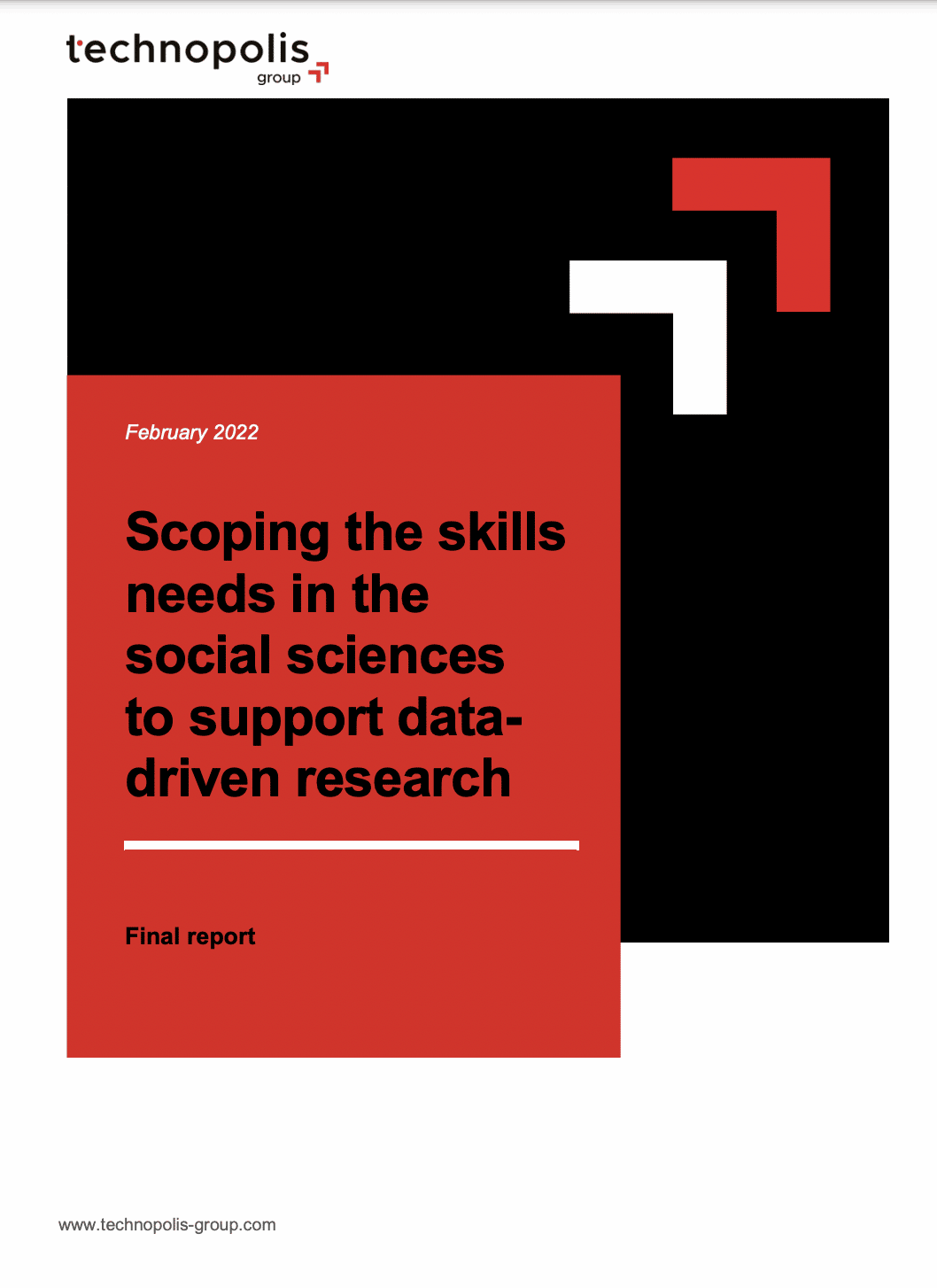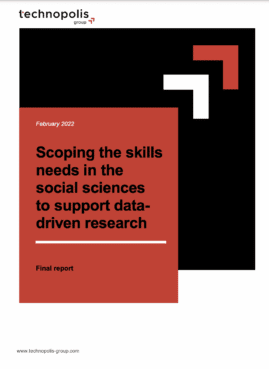Scoping the skills needs in the social sciences to support data-driven research
Publication date: 19 October 2022 | Report language: EN
This study, commissioned by the Economic and Social Research Council (ESRC), aims to identify the skill gaps that need to be addressed in order to prepare social science researchers in the UK to create and carry-out data-driven research. The study delivers recommendations for how these gaps can be addressed, specifically through postgraduate learning, and also with some focus on undergraduate and postdoctoral learning experiences.
The rationale for the study is to ensure that social scientists have the skills and capacity to fully exploit the increasing volume of large and complex data available for research purposes. Administrative and secondary data available for quantitative and qualitative analysis are increasingly open and accessible to doctoral students. Equally, advances in machine learning and artificial intelligence provide new opportunities to harness the big data produced by global corporations and social media. Understanding the implications of this fourth industrial revolution for social science research is vital and doctoral candidates will require skills their supervisors did not need. Social science research in the UK is increasingly understood within global initiatives, such as the influence of the UN’s sustainable development goals as a tool for understanding ‘grand challenges’. There has been a significant increase in the scholarship of learning and teaching (SoTL) available to training educators and leaders, to consider afresh how data-driven skills are learned. This project aims to understand this wider context, to understand what data-driven skills are required by leaders in social science research. The aim is to capture the step-change required to provide world-leading learning opportunities for doctoral candidates with an eye to career progression. So, where possible, the study takes a life-course perspective, examining data-driven skills needs and provision of training and capacity development at different career stages. This learning is then used to better understand the changes that could happen at the doctoral level to produce successful career trajectories.





